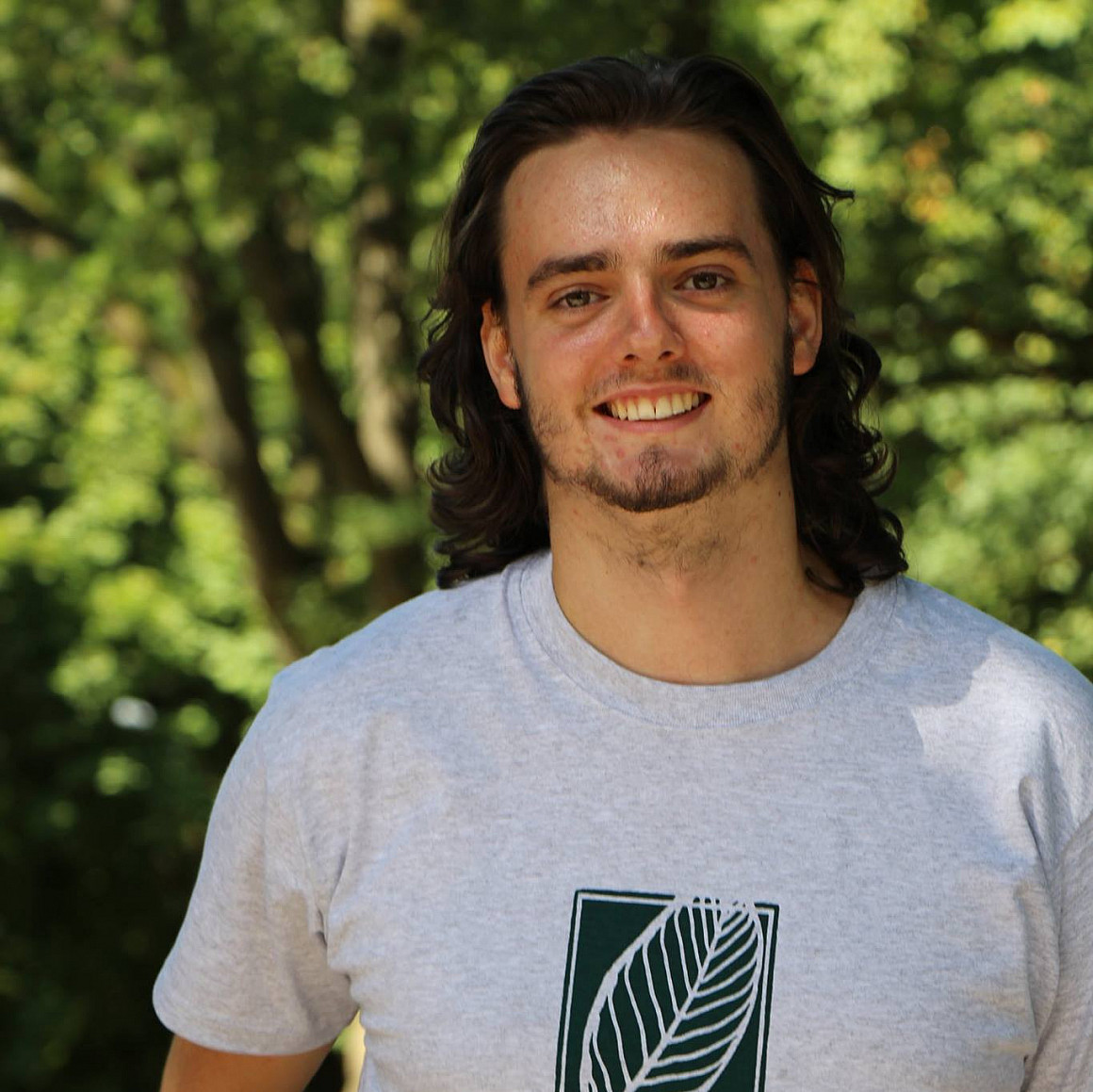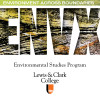main content The Power of Indirect Impact
Tobias Varntoft, ’21, describes how his experiences and studies, prior to and at LC, prepared him for working at a nonprofit organization that fosters sustainable technological innovation.

I graduated from Lewis & Clark College during the pandemic, with a degree in Environmental Studies. Ever since I can remember, the idea of environmentalism – the concern about and action aimed at protecting the environment – has always been an integral part of my life and the decisions I have made, whether I consciously knew that at those times.
I grew up in a rural “town” in Denmark where I saw first-hand the impact of deforestation, considering that the area had a ratio of humans to trees of at least 1:1000. By the time I left at the age of 16, that ratio had decreased to a merely 1:10, hyperbolically speaking. From 2015 to 2017, I was fortunate to attend the United World College Robert Bosch College in Germany focusing on sustainability and impact. During those years, I learned directly and indirectly about the nuanced discourse surrounding global environmentalism. I saw my friend from the Marshall Islands give a speech directed at World Leaders at the 2015 United Nations Climate Change Conference (COP21) in Paris, France which subsequently led to the development of the U.N Sustainable Development Goals being implemented into the agreement. These opportunities fueled my passion for understanding the complex discourse, and subsequently led me to applying and ultimately getting accepted to Lewis & Clark College in 2017. I was excited because about this opportunity because Lewis & Clark has an exceptional record when it comes “sustainability.”
By participating in the Environmental Studies Program (ENVS), I learned several lessons that not only improved and informed my critical thinking skills and perspective, but also helped me narrow down the scope of environmentalism that I was particularly interested in pursuing once I graduated. During my four years at Lewis & Clark, I spent a tremendous number of in-class and out-of-class hours dedicated to ENVS. I was an ENVS Office Assistant; a tutor; the Student Academic Associate Board (SAAB) Representative for ENVS; an organizer for the Environmental Symposium for three years, as well as taking several additional courses within the ENVS Program to broaden my scope of knowledge within the field. To summarize, I can separate it into two learning outcomes, one theoretical and one personal:
- Theoretical: Sustainability is like a spiderweb, intertwined in complexities, however, once you spend time untwining those webs, true impact can be measured and created.
- Personal: I do not particularly have an entrepreneurial mindset, meaning I do not necessarily come up with new ideas that can easily improve aspects of society to create that true impact. But that DOES NOT mean that I cannot use the skills learned at Lewis & Clark to support those who are in an indirect way.
Immediately upon graduating from Lewis & Clark in 2021, I started working as a Program Associate at Larta Institute, a nonprofit whose mission is to foster science & technology innovation for a sustainable planet. It provides direct support to startups across the U.S through various commercialization services and programs and has thus far supported over 8,000+ startups to accelerate their technology to market. I quickly excelled at the role because I was put in a position where I did not necessarily need the 25+ years of consulting experience to provide direct support to startups that are creating technology for true impact in the world, but I get to be the middleperson that enables them to accelerate their ideas and technologies, creating true impact in an indirect way. The skills I had gained from participating in the ENVS Program (organizational, acumen, and passion for impact) quickly served its purpose in this role and after only one year I was promoted to Senior Program Associate and subsequently Program Manager only six months thereafter. My role and responsibility has only been growing over the last two years and I feel a sense of gratitude to the people at Lewis & Clark and the ENVS Department for providing opportunities for me during my time in college to expand on my passion, curiosity, and skills.
If you are reading this and are about to graduate from college and completely unsure how to approach the post-graduate world, or simply just do not know where your “true passion”, I will offer one simply thought that has been pondering in my mind these last few months.
A “career path” does not necessarily need to include specificities and is not static. It can simply be a passion for a particular skill, an interest in a specific area. Start thinking about it and jot down some thoughts, however, keep these notes dynamic and have them be changed occasionally. Expecting ourselves to have our entire lives figured out by the age of 21 is absurd, and trust me, I have only been out of college for two years and my mind has already changed more times than I can count on my fingers.
At the end of the day, the footstep we leave on this Earth will only be measured, and truly remembered, by the impact we created for the people around us, however big and small that might be.
Environmental Studies is located in room 104 of Albany Quadrangle on the Undergraduate Campus.
MSC: 62
email envs@lclark.edu
voice 503-768-7790
Symposium Advisor Jim Proctor
Environmental Studies
Lewis & Clark
615 S. Palatine Hill Road
Portland OR 97219
More Stories

Farming, Oceanography, and the Arctic
Rylie Neely ’20 shares how she continued to use her ENVS education during an unplanned career pause due to Covid.
2025 Project Descriptions for the Rogers Program
Summer science research opportunities

Finding Paths
ENVS alum, Julian Brastow ’22, describes his initial job search after graduating from LC.

Place-Based Learning
From Trash to Treasure: Creating Art From Waste
Cara Tomlinson’s Art and Ecology class uses waste materials from around Portland to create beautiful and meaningful works of art. This course offers a fresh approach to creative practice, merging art and ecology to help students respond to the climate crisis, explore the agency of materials, and build connections to place.
